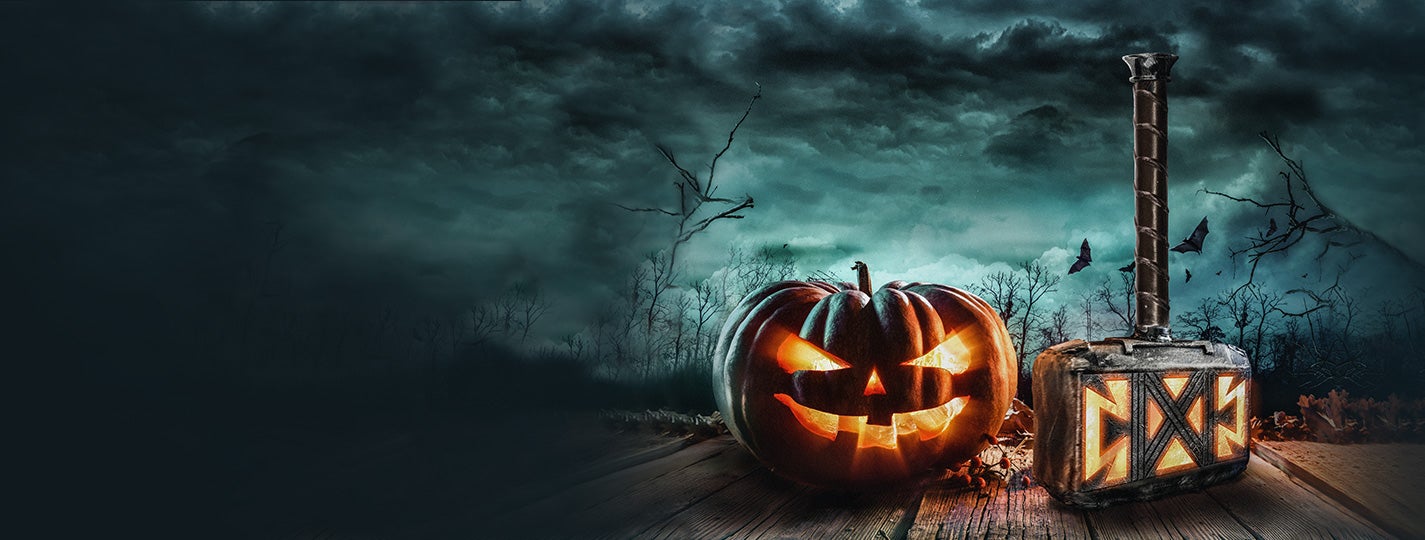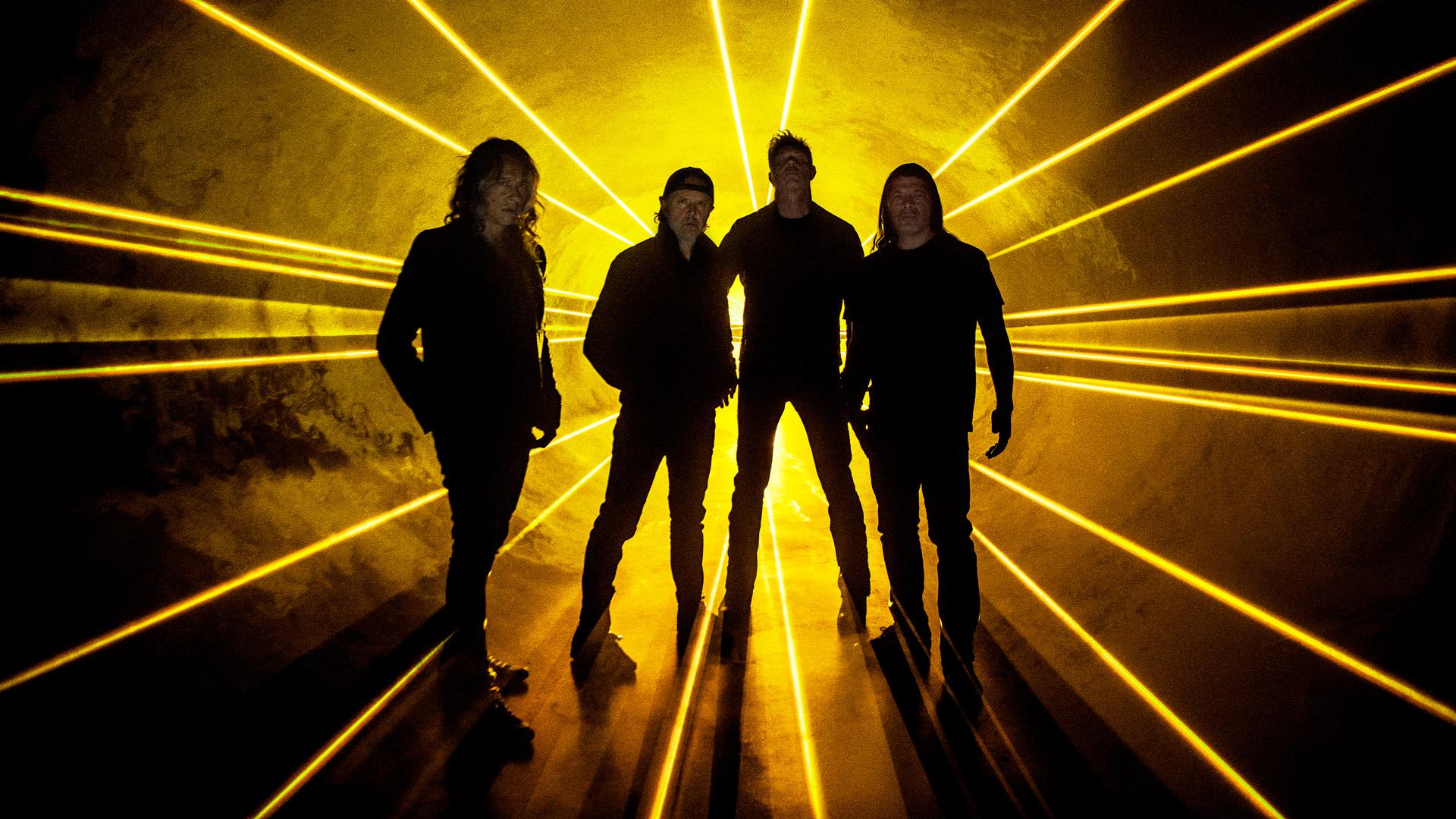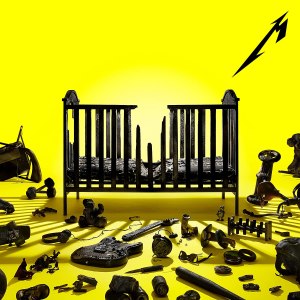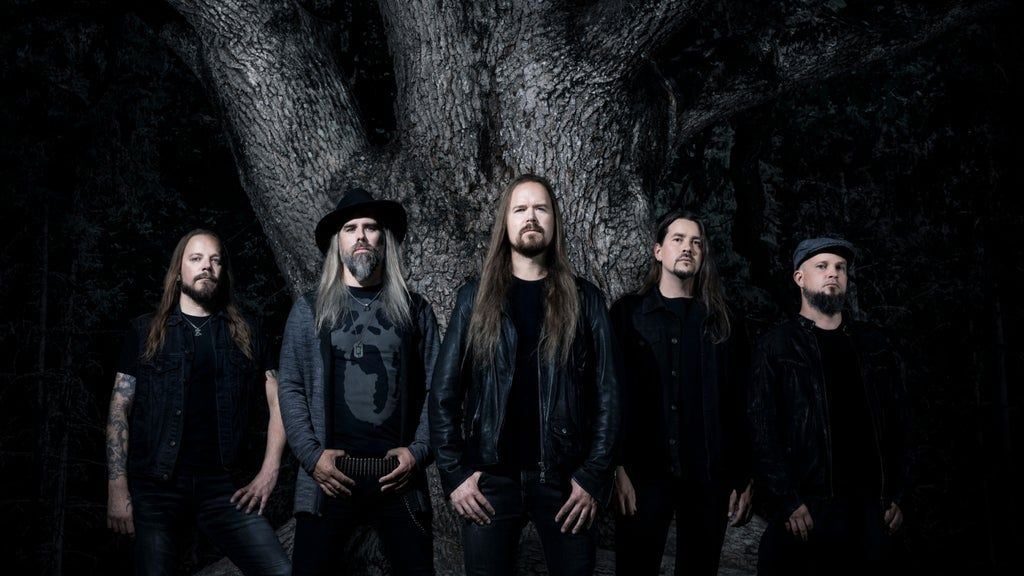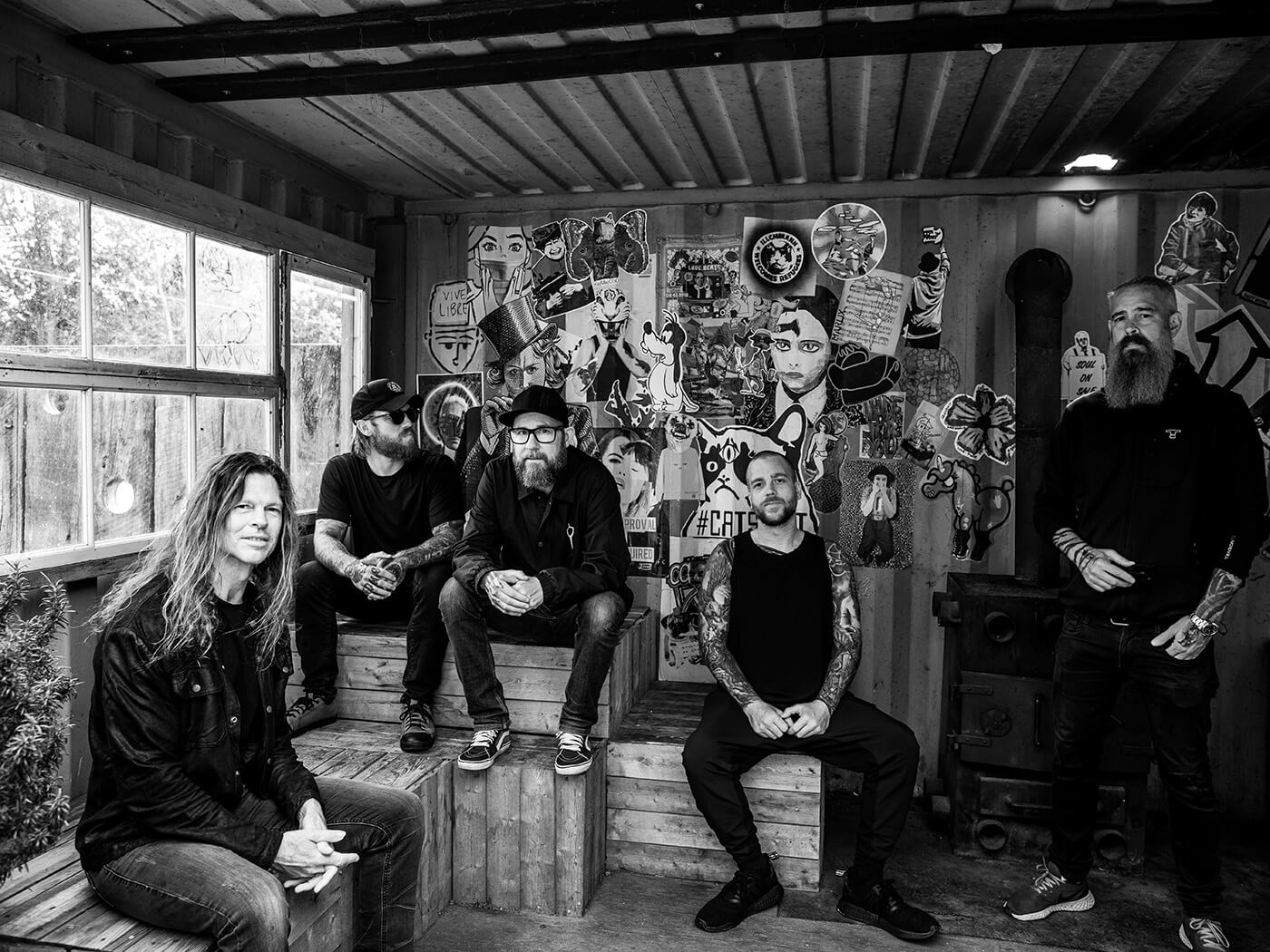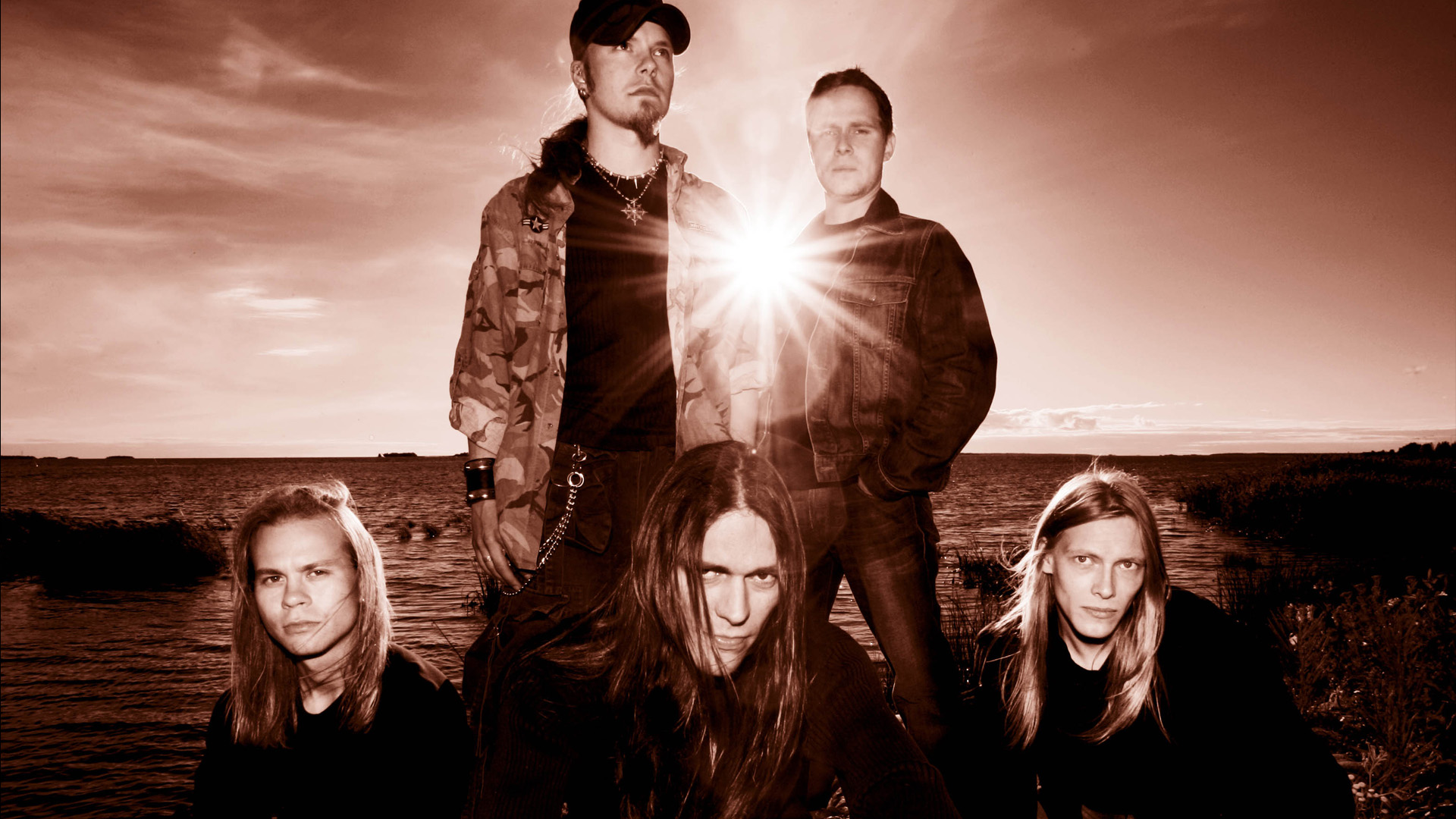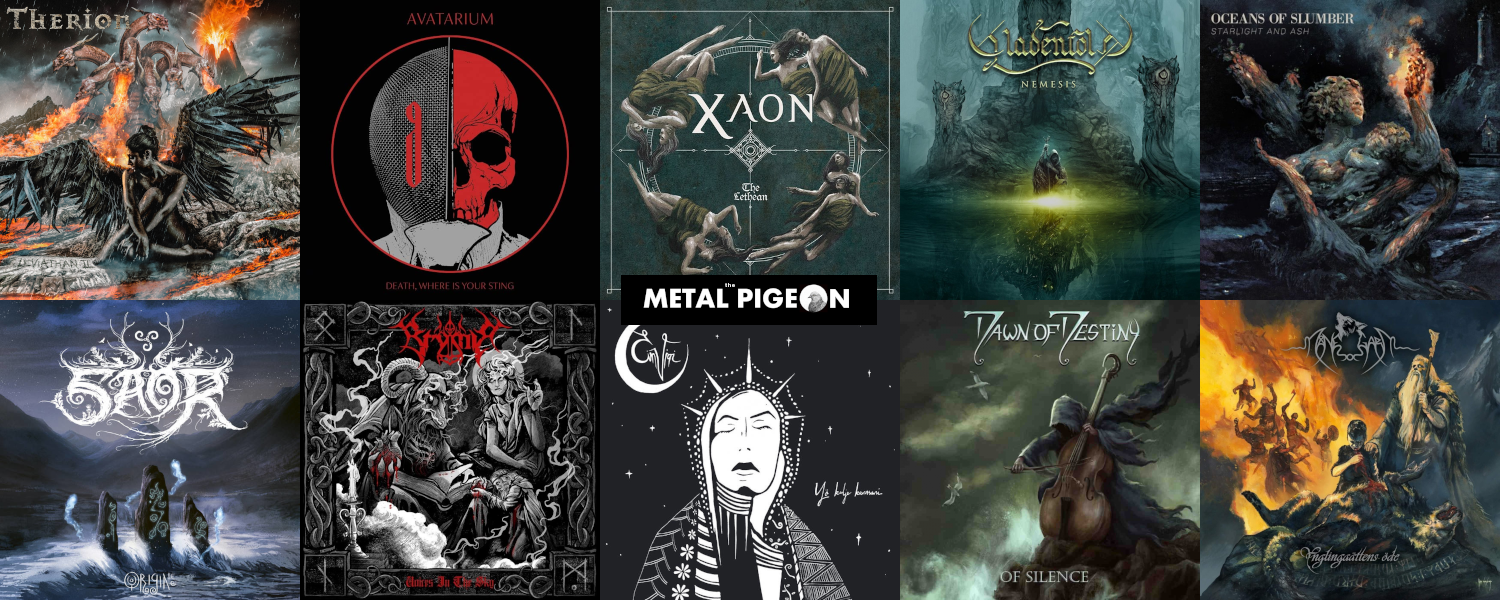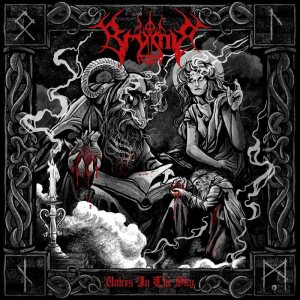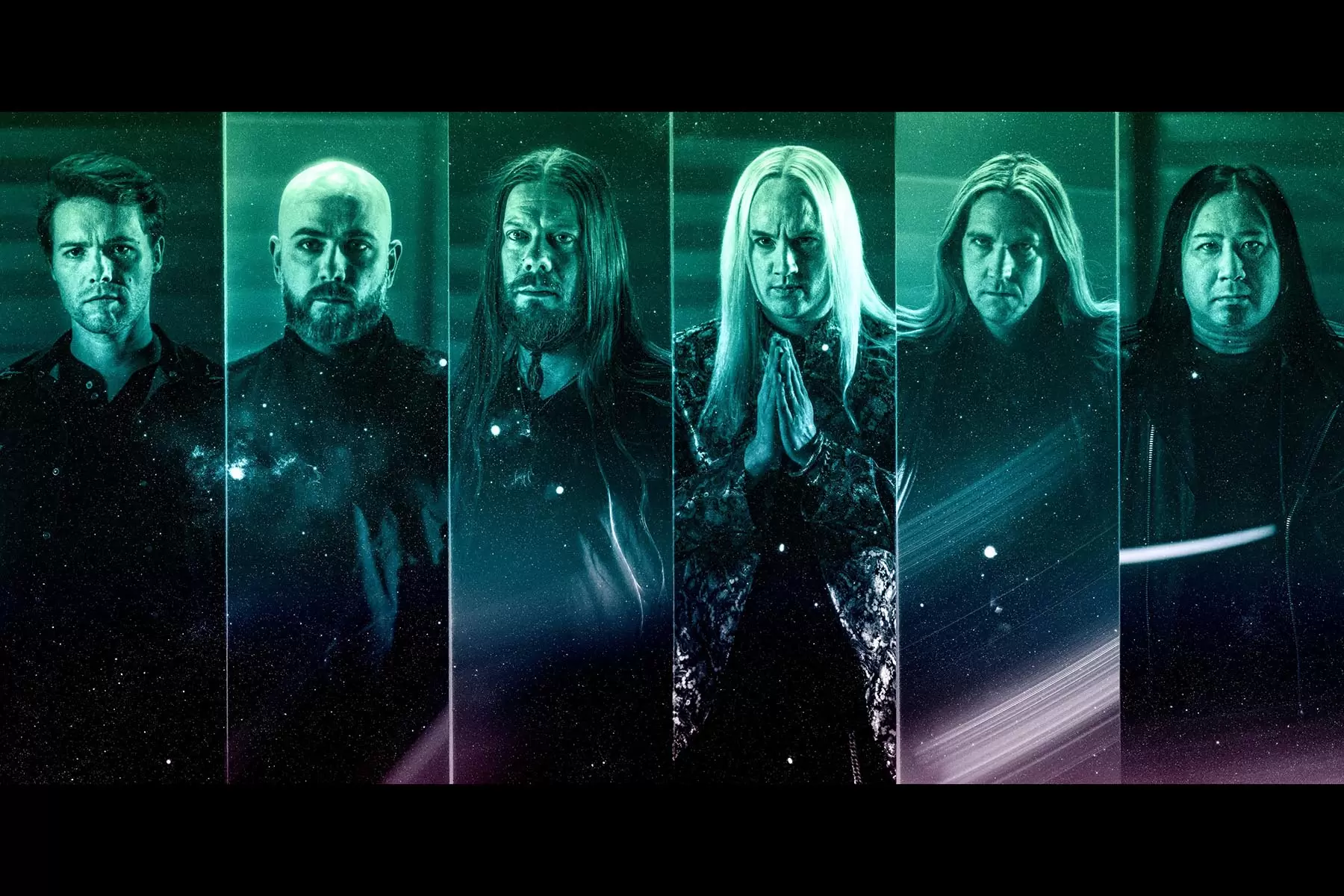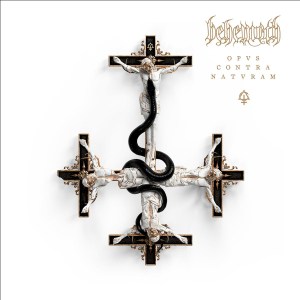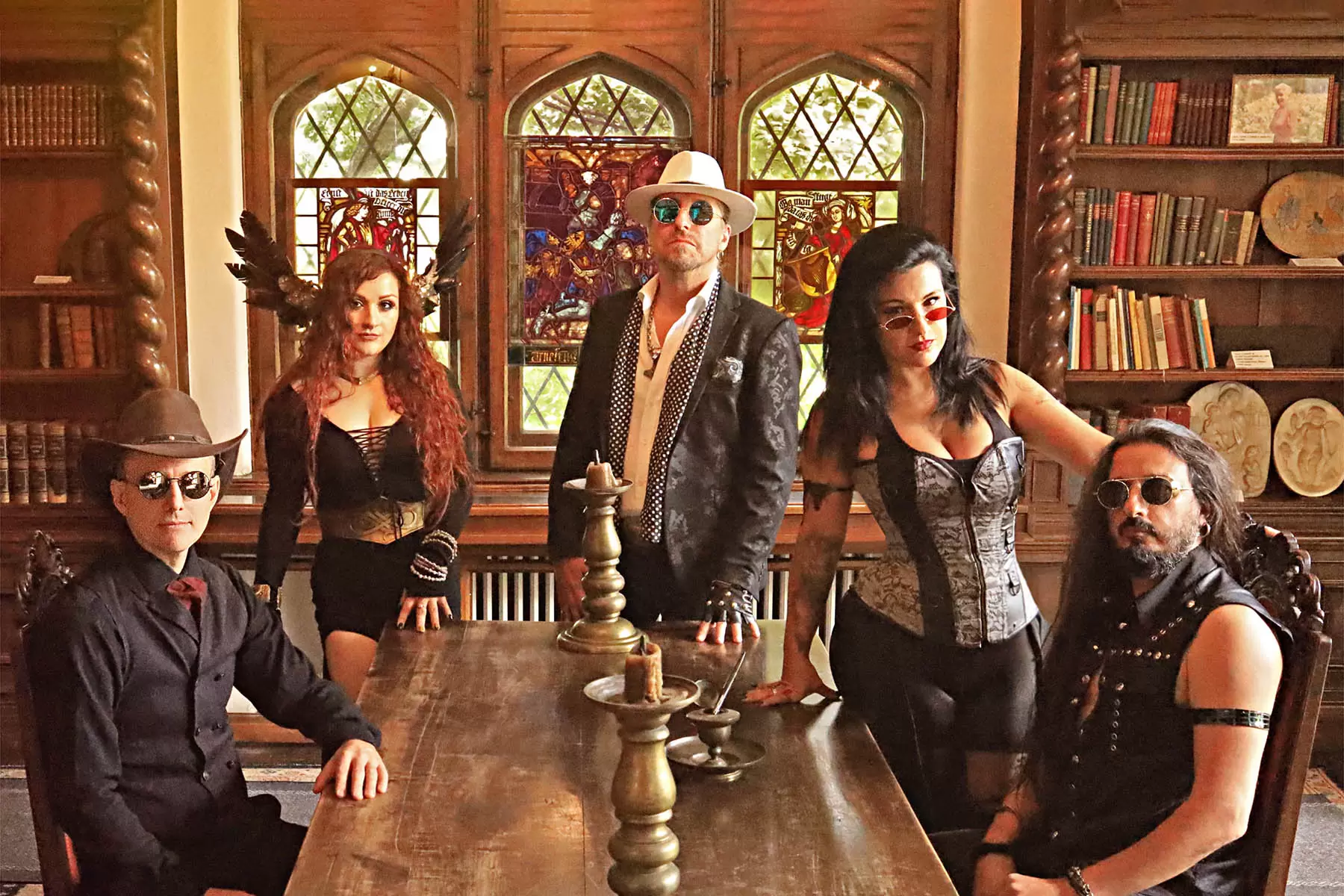The Metal Meat n’ Potatoes
It’s been an interesting past few weeks here at The Metal Pigeon, most notably because I finally got to see the legendary Helloween live on May 13th in what felt like a truly once in a lifetime event, but also because I feel like I’ve been listening to more metal in a concentrated span of time than I have in a long, long while. Actually to that point, as much as I’ve been enjoying stepping off the new release reviews treadmill that nearly derailed this blog entirely with burnout over the past couple years, there is a big drawback. Namely, that in being more casual about discussing new music, a lot of things I want to discuss have started piling up rather quickly. I have a breezy overview of much of the new music I’ve been listening to further down below, more a collection of overall impressions rather than detailed reviews. However, first I wanna talk about something I heard Justin of The Metal Exchange Podcast say on an older episode of the show covering Avantasia’s The Metal Opera, their first 10/10 rating for an album on the show.
He talked about how despite loving that album, he felt he hadn’t spent enough time with it over the years, having potentially wasted time on other albums that were mediocre in the intervening years, and how it was important to get back to the “meat and potatoes” of what great metal was to him. To listen to those albums more, spend more time with them. I really identified with that comment, because it seems so obvious, but I’ve always had this slightly guilty feeling when I indulge myself in listening to classic albums I’ve long loved, because that voice in my head says “hey what the hell are you doing… you should be paying attention to new music… new, new, new!”. But I’ve mentioned my Judas Priest’s Turbo indulgence over the past year, revisiting that album repeatedly and appreciating it anew. I sort of extended that into the wider Priest catalog slowly but surely, and have gone back to just jamming those records for fun… ditto for classic Maiden albums. Look, Maiden is my favorite band of all time, but I couldn’t remember the last time I had played their older studio albums at all before this past month and a half, when I’ve been playing them unapologetically and appreciating them all over again.
The Metal Exchange podcast has had a lot to do with this, as I’ve been playing the classic albums they’ve covered on their show as I’ve been working my way through their older episodes. Justin’s revelation on that episode about revisiting the great albums more frequently is right on, a truth that I’ve been slow to work my way back to, but in relistening to all these classic Priest and Maiden albums, among many other veteran artists, I’ve been reminding myself of what I grew up loving about this genre in the first place. I think when you get bogged down in that new release listening cycle exclusively, you run the risk of losing sight of that, particularly when you hit a spell of albums that just don’t move you much, or are examples of the aforementioned mediocrity. Actually, in revisiting these metal touchstones of the past, I’ve felt it’s been head clearing in a way for me to better receive new music from newer bands, a bit of stepping backwards in order to progress forwards I guess. This might only be of interest or relevance to a few of you who’ve felt yourself caught up in similar listening habits, but I’m guessing you few know exactly what I’m talking about here.
Speaking of veteran artists, Helloween has been a big part of this revisiting the classics process over the past two months, in fact methodically going through their catalog was a big part of the prep for the show I caught in Dallas. They played a mix of stuff from their career, including some stuff from their fantastic recent self-titled reunion album, but the songs that caught me off guard with how much I enjoyed them were the off-beat choices, such as “Perfect Gentleman”, and damn… “Forever and One”. That one really shook me, seeing Kiske and Deris handling lead vocals together in a spectacular, goosebump inducing duet. It was an emotional apex during the show, and I kept thinking back to old interviews I would hear via Dr. Metal’s Metal Meltdown radio show back in the late 90s, when musicians in the know would tell the Doc that a Helloween reunion would never, ever happen. So seeing those two together on this Deris era classic was a little surreal in the moment, and definitely a highlight of what was a spectacular show in general. On the drive back to Houston, I went through Deris era albums that I’d not listened to in ages, Master of the Rings, The Time of the Oath, Better Than Raw, and also a long time favorite, The Dark Ride. They sounded so much fresher than I’d have expected, the Turbo effect in action.
Yesterday when driving to our Saturday D&D session (nerd!!!!), I was listening to the Scorpions’ odd 2011 release Comeblack which was half re-recordings of their most classic cuts, and half covers of old rock songs that I suppose were influences on the band back in the day. I had previously only given the album a cursory glance and dismissed it as a pointless release. But I gotta say, I found myself really enjoying it, the re-recordings especially, because it was so interesting to hear these classic Scorps songs I knew by heart in a studio context without the distraction of crowdwork and cheering on a live album, yet still different from the original recordings whose very nuances I’ve had burned into my memory by now. Klaus enunciates the lyrics better here, the guitars attack in a way that more closely emulates their live attack, and freed from the sonic idiosyncrasies that characterized the old Dieter Dierks production style, I was hearing these songs in a brand new context. It wasn’t better or worse, just different. It was another reminder that there was as much value in delving into the musical archives so to speak, as there was in making sure you continually check out new music to keep your synapses firing and challenging your tastes.
Some New Music Chit-Chat
So onto the new stuff then, the cream of which has had to elbow and fight its way past not only recent release competition, but also my incessant need to hear every live version of “The Clairvoyant” on a random Wednesday afternoon. So lets talk about the albums that managed to hold their own against heavy consumption of Maiden, Priest, and Helloween:

Immortal – War Against All: I didn’t really think that Demonaz would be able to top 2018’s first post-Abbath release Northern Chaos Gods. That was a top ten album for me that year, a really powerful statement from Demonaz and Horgh about what they could put together on their own. Now, a few years later in a post-Horgh Immortal, Demonaz is able to stand on his own via unleashing an album that I think is somehow even leaner and meaner than it’s predecessor. When I think on the quality and innate Immortal-ness of these two albums and consider Abbath’s recent output in his own band, I have to admit that I’m questioning just how integral he was to the band’s songwriting approach over the years. For certain his ability as a guitarist left it’s mark on those classic albums, but I’m starting to suspect now that the key architect to the band’s sound was Demonaz after all, and it’s maybe long past time for him to get credit for that.

Cloak – Black Flame Eternal: The classic yearly out of left field surprise that really shouldn’t be a surprise given that I do remember listening to this band on their prior two albums over the past few years pre-pandemic and thinking that they were solid, but solid apparently doesn’t do enough to work it’s way into my memory, so enter Black Flame Eternal, in the running for the most satisfying extreme metal album of the year thus far. The description of their sound on Metallum is a bit odd (gothic/black metal) because while there are certainly gothic overtones ala Tribulation layered over the top of these songs, at their core this is some of the strongest black n’ roll I’ve heard in awhile. And I really mean the roll part too, these songs often built around rockin’ riffs that have an accessible headbanging bent to them. There’s little in the way of any kind of wall of sound/tremolo wave traditional black metal soundscaping here, and maybe that’s why this sounds so fresh and exuberant even in the dead of summer where my mind usually craves more of a hard rock/trad metal sound. No duds whatsoever, I could easily envision “With Fury and Allegiance” winding up on the best songs list down the line, and yeah, just a blackened record that really rocks, hits hard, and doesn’t ever bore me, I love it.

Gatekeeper – From Western Shores: I remember giving Gatekeeper’s debut album a few years ago a spin when their promo from Cruz del Sur landed in my inbox — I think I had just realized at the time how much that label was putting out stuff that was capturing my attention and I gave them the benefit of the doubt. The only thing I clearly remember about the listening experience (apart from the band’s very raw sound at the time) was that I felt the band had moments of potential but overall it wasn’t quite sticking with me. Clearly with how much I’ve been enjoying From Western Shores over the past few months, I’ll have to firstly go back and check out the debut to see if it wasn’t just a wrong headspace thing, and secondly, give the band serious props for possibly realizing said potential. I agree with the chorus of opinions I’ve heard from people I’ve discussed this album with saying that the new singer is a far better fit for the band, Tyler Anderson’s pipes sounding a bit like a more stoic, less outlandish Eric Adams. Despite the much improved production, fatter guitar sound, and tight mixing, there are still rough edges to Gatekeepers attack, but I’ve come to realize that’s more of a defining facet of their sound at it’s core. I find it charming, and it does work in a weird way to lend mystique to these songs in a Manilla Road kinda way. This whole album is a epic, rocking, somewhat weed smoke tinged vibe and it’s worth checking out.

Foretoken – Triumphs: A pretty solid, widely overlooked sophomore album from a Virginia based duo dishing out some finely crafted symphonic/folky melodeath fusion with a touch of blackened vocals just to further blur the lines dividing genres. There’s a trad metal sound to their guitar attack that I appreciate, a Priest-ian edge that chugs at the right time and a steely, flinty edge to the rhythm guitar tone that is sweet to hear. The interesting tidbit behind the production here is that Jacob Hansen is at the controls for the mixing and mastering, a guy who’s best known in the metal scene at the moment for his role in prog-power metallers Pyramaze and in being the producer du jour for numerous melodic vocal adorned bands of various subgenre types (I mean, he’s Amaranthe’s producer for starters). And of course Hansen has done work with extreme metal vocal bands in the past, but not that many in comparison, so this is an interesting record to listen to with that in mind if you’re a nerd about these things, which… if you’re reading this you likely are (it’s okay).

Enforcer – Nostalgia: I’ve been uncertain of how I felt about Enforcer for the longest time, initially being really impressed because my first exposure was seeing them live in a support slot for a tour I can’t even remember the headliner for. They were such an electrifying band on stage, but dang it if they couldn’t quite manage to capture that same feeling on record for me. I just wrote them off as being one of those great live bands that you really only took in live (Midnight falls into this category for me) and didn’t spend a lot of time with their studio output. Their last album, 2019’s Zenith was intended to be a change of pace from their proto-typical speed metal inspired sound, and some argued that it leapt far too deep into the pool of 80s commercial hard rock. I didn’t mind the attempt, but the execution felt off. So four years later, they’re sort of going back to their roots, but a little of that experimental mindset from Zenith still lingers, and I’d argue to far better effect. The title track here is the kind of thing the Scorpions would’ve knocked out around the Savage Amusement era, a perfectly articulated 80s hard rock power ballad that is honestly just gorgeous. But beyond that, they’ve somehow worked out the kinks to infuse their traditional sound with the arena hooks they were trying to achieve on the last album, and that makes Nostalgia easily the most compelling release they’ve delivered thus far.

Grave Pleasures – Plagueboys: So not a metal record at all, but if you’re a fan of bands such as Idle Hands/Unto Others, psychedlic trippy old school era The Cult, and maybe even Depeche Mode vocal aesthetic, this might be something to look into. I guess I do have to admit that at times I wish Grave Pleasures would turn it to eleven and really crank out some riffs, but in fairness, there’s nothing here that suggests they had any ambitions to be a heavy band in the sonic sense. It’s just that everything else about this album screams weirdo goth metal and I can’t help but love that. Some unexpectedly delightful guitarwork on this record, beautiful solos that often have unexpected melodic twists and turns. A love it or leave it kinda affair I’ll admit, but I think it’s a beautiful album.

Cruachan – The Living and the Dead: The other Irish metal band of some renown (I kid, I know there are starting to be worthwhile metal bands coming out of Ireland lately), Celtic-folk metallers Cruachan released this way back in March, and while I had it on heavy rotation all those months ago, it’s slowly drifted it’s way back into my recent listening as I have sort of taken stock of the halfway point of the year (I briefly thought about writing a midyear report, but nixed it because I feel like that influences me too much when assembling the end of year lists later). This is a band that I used to love way back in the early 2000s heyday of the folk-metal explosion, and just kinda spaced out on for the rest of the years in the interim. I think this is the first album I’ve heard from them since The Morrigan’s Call in 06, and better production notwithstanding, they sound exactly how I remember them which is fantastic. You guys know my feelings on folk metal, I love the stuff that rings of grit and an authentic spirit, not canned corniness. This is one of those slightly uneven albums where I do favor some songs more than others, but overall it provides a rich listening experience, particularly in its more syrupy sweet acoustic moments.

Keep of Kalessin – Katharsis: I know I talked at length about this on the MSRcast a few episodes ago, so I won’t go into much beyond stating here that I genuinely found so much to love about this album. I’m not sure what the consensus opinion has been overall, because it met with some criticism in my metal circle when it came out, but I’m not that familiar with the band’s discography as a whole to judge if they dipped here (doesn’t sound like it to me). This is one of those records that had moments throughout where I found myself having that familiar feeling of “ahh this is why I love metal so much”. And records like that seem more rare the more stuff you listen to and the longer you’ve been a fan, fighting being jaded I guess. That means a whole heck of a lot to me, and songs like “Journey’s End” just hit that emotional core for me in a way that few bands have managed. I really took notice of this band with this one.

